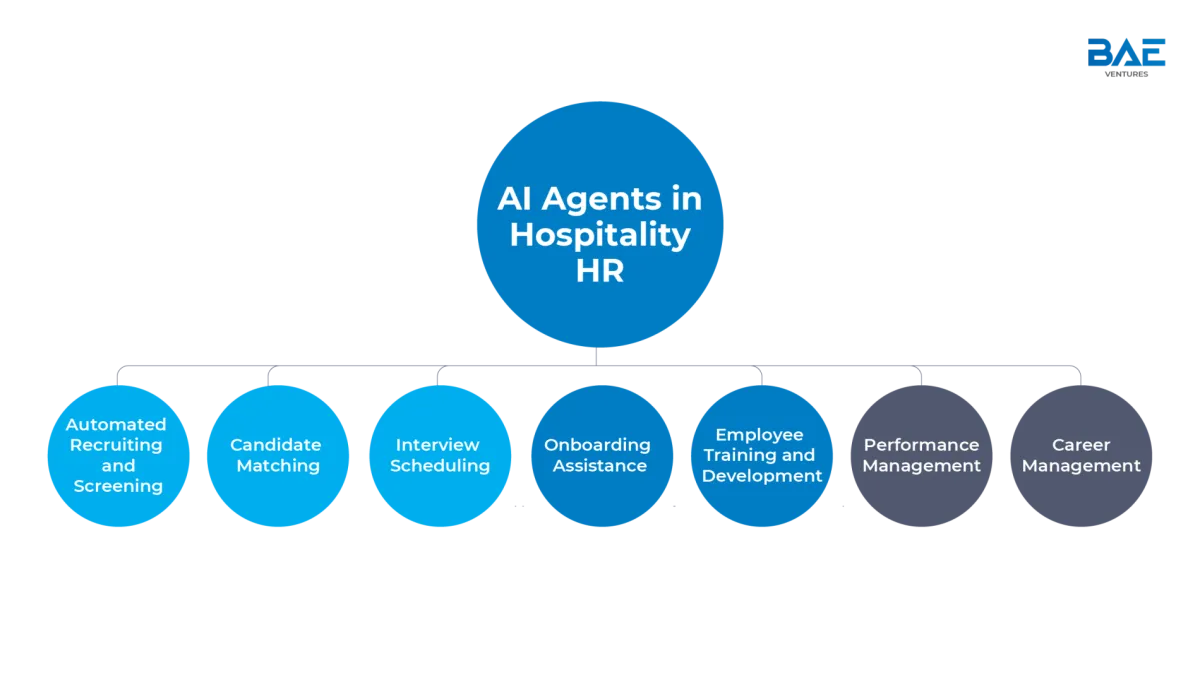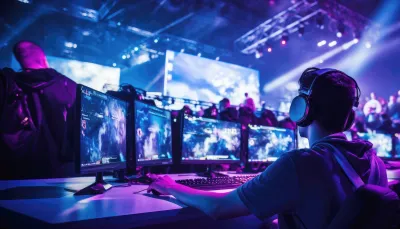HR Assitant
AI agent
Real-time
AI Agents in Hospitality: Revolutionizing Human Resources

HR Assitant
AI agent
Real-time
The hospitality industry, long defined by its people-focused service, is undergoing a technological transformation with the rise of AI agents. These tools promise not only to enhance guest experiences but also to address one of the sector’s most persistent challenges: human resources management. With turnover rates averaging 30%, effective HR strategies are critical. The practical application of AI agents offers hotels the opportunity to revolutionize recruitment, training, and employee retention—if they can adapt quickly.
The AI Agent as a Real-Time HR Assistant
Imagine a new hire—a front desk associate—navigating their first busy check-in period. Instead of relying on traditional training sessions, they turn to an AI-powered HR agent for instant, step-by-step guidance on handling late check-ins or unexpected guest requests. This is the new reality AI agents can create: real-time, personalized on-the-job training.
By embedding AI into daily operations, hotels can reduce dependence on resource-heavy classroom sessions. AI agents offer adaptive learning experiences, tailoring guidance to individual needs and accelerating employees' paths to proficiency. This practical shift doesn’t just save time and money; it builds employee confidence and reduces turnover—a critical factor in an industry where recruitment costs are high.
Bridging Efficiency and Personal Connection
The hospitality industry thrives on personal connection, and there’s a valid concern that automation could erode this foundational value. However, AI agents are not here to replace the human touch; they are here to empower it. By automating routine HR tasks like payroll processing, compliance tracking, and scheduling, these tools free up HR professionals to focus on meaningful engagement with employees.
For example, predictive analytics from AI agents can flag early signs of employee burnout, enabling HR teams to intervene with tailored support. Similarly, AI tools can personalize development plans for staff, fostering a culture of growth and recognition—key drivers of job satisfaction and loyalty.
Leveraging AI for Competitive Advantage
Early adopters of AI in hospitality HR will gain a significant competitive edge. Hotels equipped with AI agents can:
- Streamline Recruitment: AI tools automate resume screening, candidate matching, and interview scheduling, drastically reducing time-to-hire and ensuring better-fit candidates.
- Optimize Employee Engagement: AI agents can conduct regular surveys and analyze feedback, identifying trends and suggesting actionable improvements to workplace satisfaction.
- Enhance Workforce Retention: Predictive analytics help HR teams identify at-risk employees, enabling proactive measures to boost retention.
Moreover, AI agents enable hotels to handle workforce fluctuations with agility. Seasonal hiring surges or unexpected vacancies become manageable through automated systems that scale HR efforts efficiently.
The Roadblocks: Trust and Implementation
While the benefits are clear, the adoption of AI agents is not without challenges. The reliability of Large Language Models (LLMs), which power many AI tools, remains a concern. Errors or biases in AI-driven decisions can undermine trust among employees and management. This makes human oversight a non-negotiable component of AI integration.
Additionally, as highlighted by industry experts, the key to unlocking AI’s potential lies in structured, high-quality data. Hotels must invest in robust data management systems to ensure their AI agents perform effectively. Integrating these systems with existing HR platforms—while maintaining strict data privacy standards—requires careful planning and execution.
Actionable Steps for Hoteliers
- Audit and Identify Opportunities: Evaluate current HR workflows to pinpoint tasks where AI can make an immediate impact.
- Invest in Data Infrastructure: Ensure that employee data is well-organized and accessible for AI tools to analyze effectively.
- Train and Empower HR Teams: Provide training on how to use AI agents and clearly communicate their role as supportive tools, not replacements.
- Monitor and Optimize: Continuously review AI agent performance, making adjustments to improve reliability and outcomes.
A Stronger, Smarter Workforce
AI agents are not just tools; they represent a shift in how hospitality HR functions. By embracing these technologies, hotels can reduce inefficiencies, enhance employee satisfaction, and foster a culture of continuous learning. As AI continues to evolve, its potential to transform HR practices becomes more apparent.
At BAE Ventures, we believe that the future of hospitality lies in the thoughtful integration of technology and human expertise. AI agents are the bridge to that future—practical, adaptive, and undeniably transformative. The question is no longer if hotels will adopt AI, but how effectively they will harness its potential to redefine success in hospitality HR.



